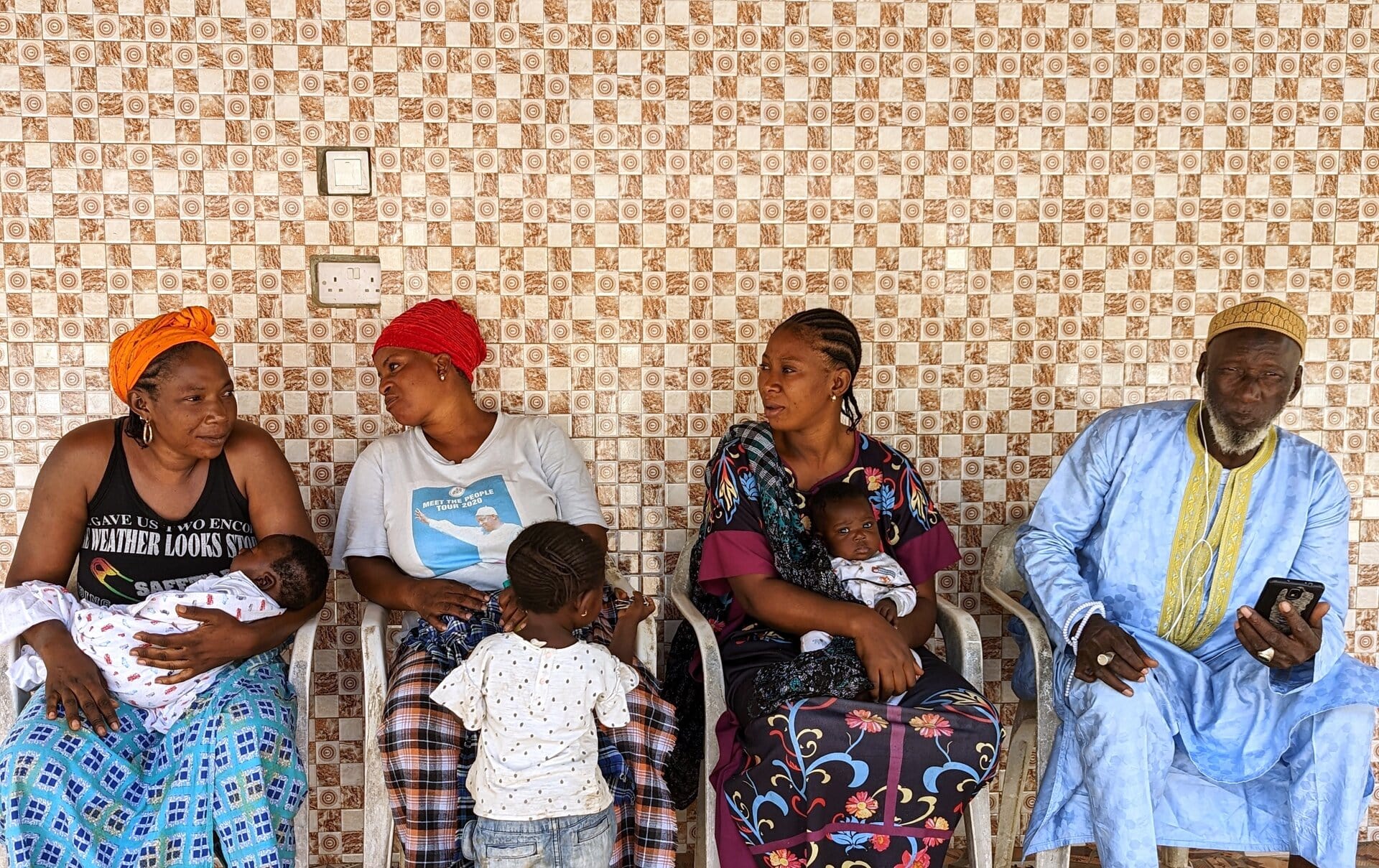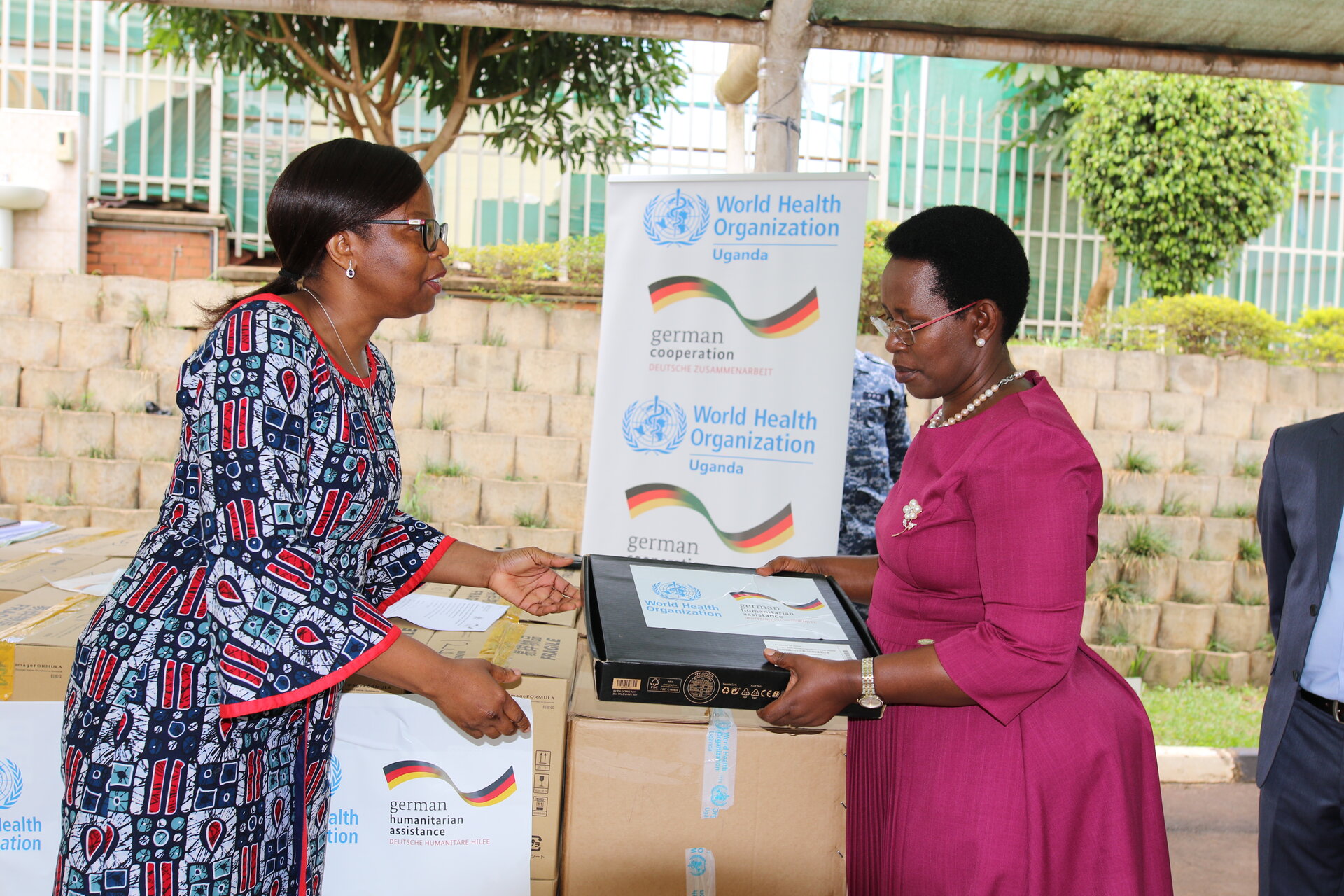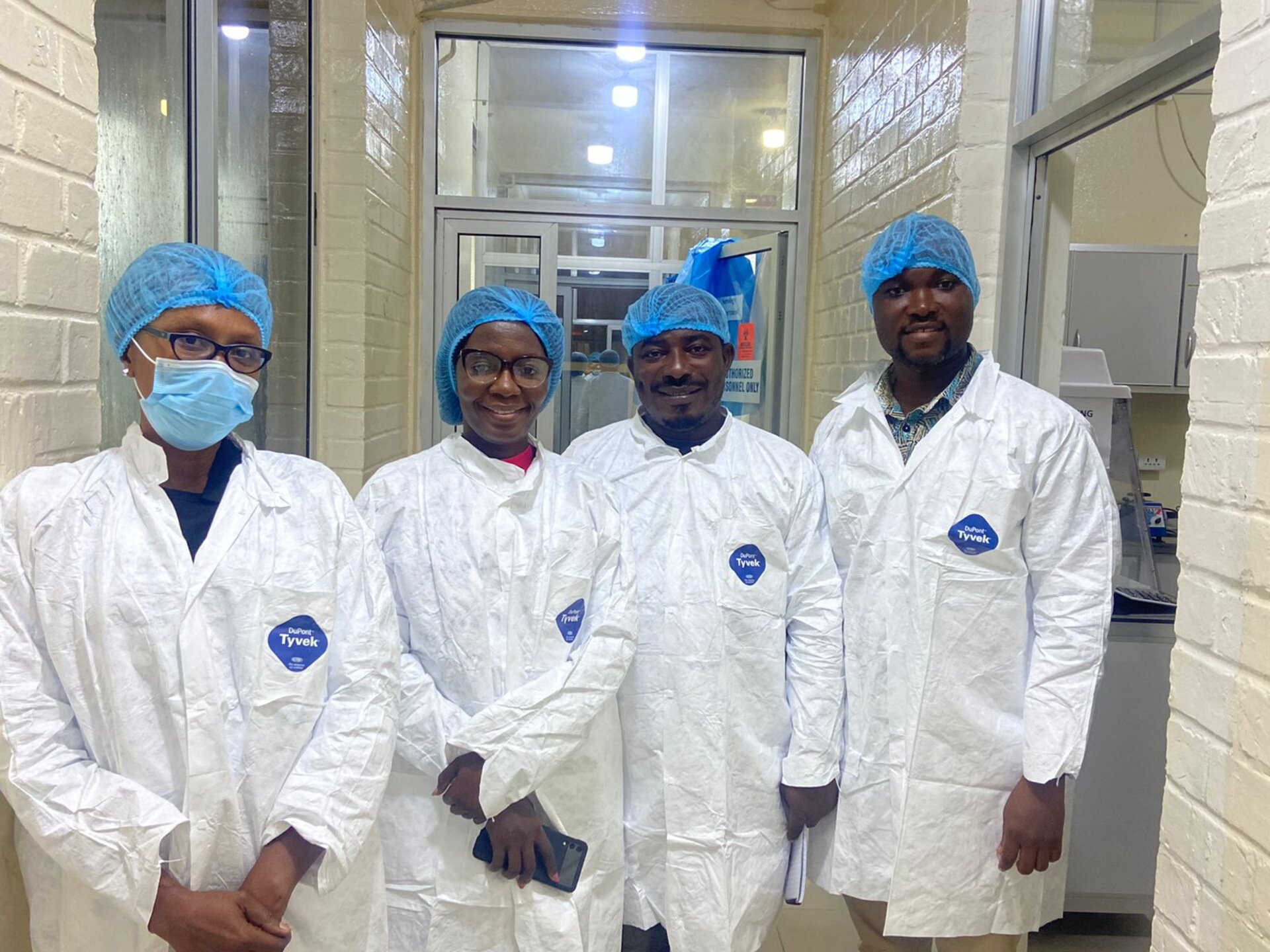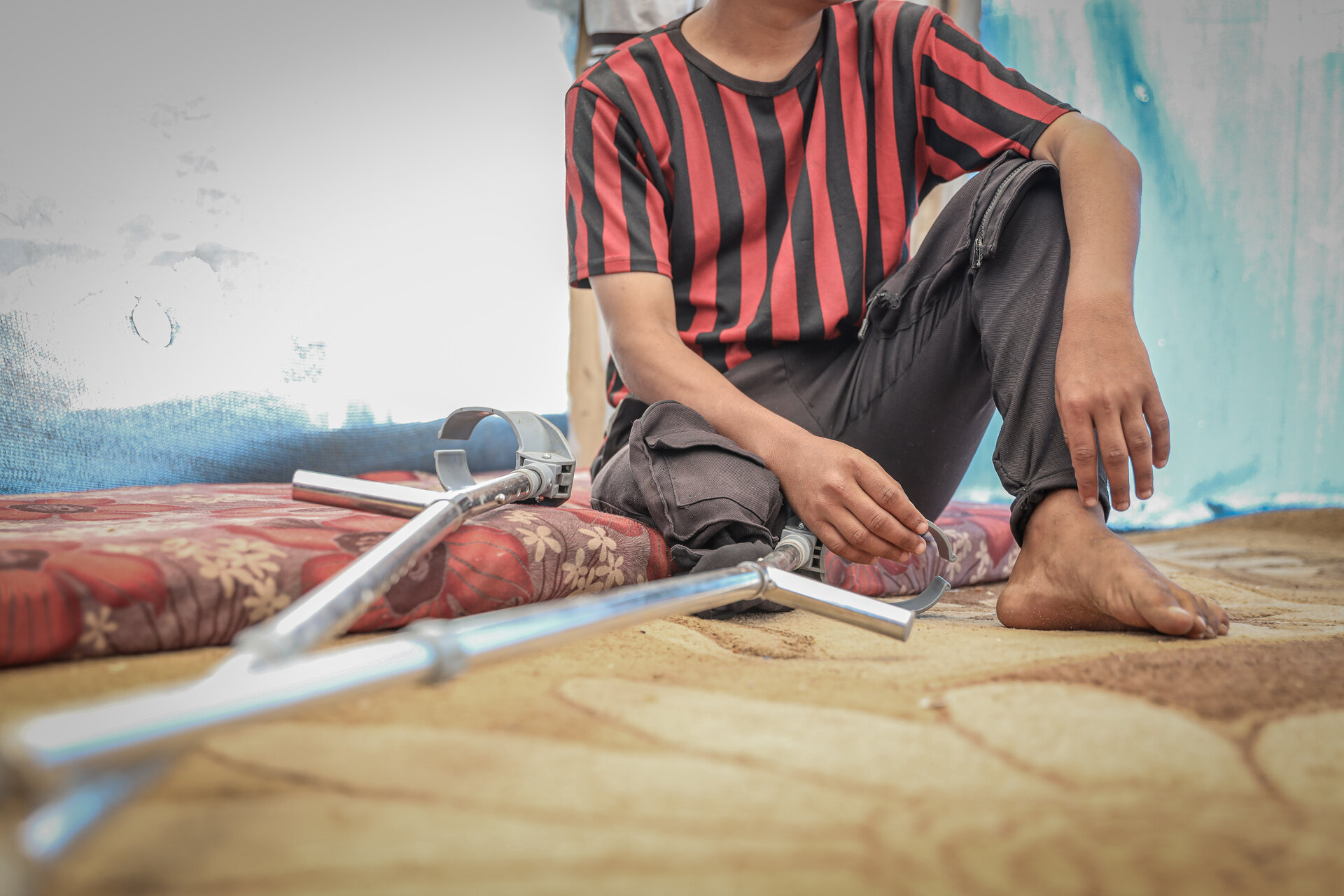WHO is dedicated to helping countries enhance their capabilities in core areas such as improving governmental public health functions and performance, with priority given to health protection and promotion and disease surveillance and prevention. WHO also supports its Member States to build sustainable institutional capacity in health, to consolidate data and advance innovation. This implies enhancing national health authorities' skills for systematic and transparent translation of evidence to inform policy and national decision-making.
Importantly, WHO also works collaboratively to progressively strengthen capacities to manage health emergencies, at national and community levels.
These stories from the field exemplify WHO's work to strengthen countries' abilities in a range of areas including: regulatory systems; innovation in data collection and use in policy decisions; responding to emergencies such as disease outbreaks; electronic medical records; dealing with trauma in humanitarian settings; women's leadership in emergencies; and strengthening health workers' skills and capabilities.
A bright future for safe medicines in The Gambia
 Chief Ebrima, his three wives, and children during the house-to-house recall of Paracetamol syrup and other drugs amidst the acute kidney injury (AKI) outbreak response, fostering community awareness and safety. Photo by: WHO/Gambia Mr Monik Bhatta
Chief Ebrima, his three wives, and children during the house-to-house recall of Paracetamol syrup and other drugs amidst the acute kidney injury (AKI) outbreak response, fostering community awareness and safety. Photo by: WHO/Gambia Mr Monik Bhatta
Following the import of contaminated cough syrup which caused the death of 66 children, WHO and the Gambian Medicines Control Agency acted swiftly to alert the public, recall the medicine, and then overhaul its regulatory system.
Robust healthcare regulation and meticulous scrutiny of every medical product entering Gambia is crucial for population's safety, with over 5 000 medical products imported each year.
WHO, through the UHC Partnership, has provided technical support to the Medicines Control Agency (MCA) and Ministry of Health, facilitated partnerships, and invested in capacity building and training initiatives to build a strong regulatory system for medical products. Today MCA is stronger than ever, backed up with amended legislation for a more efficient and safe system.
Read the full story.
A simulation exercise helps Western Pacific countries prepare for future outbreaks
/teams/regional-emergencies-programme-and-division-of-health-security-and-emergencies-(dse)/country-health-emergency-preparedness-ihr-(cpi)/national-crisis-preparedness-and-response-centre-ministry-of-health--malaysia.jpg?sfvrsn=2a0e0a23_3) Members of Malaysia's National Crisis Preparedness and Response Centre at the Ministry of Health, participate in an annual IHR simulation exercise.
Members of Malaysia's National Crisis Preparedness and Response Centre at the Ministry of Health, participate in an annual IHR simulation exercise.
Photo by: National CPRC, Ministry of Health, Malaysia
Arboviruses, such as dengue, yellow fever, chikungunya and Zika, are all current public health threats in tropical and sub-tropical areas. If a new arbovirus outbreak were to emerge in the Western Pacific, how would countries verify, report, and share information?
In November 2024, with support from the Asia-Europe Foundation (ASEF), 36 countries and areas in the Region addressed this critical question during International Health Regulations (IHR) Exercise Crystal, a simulation exercise designed to test their communication capacities. The exercise gave participants an opportunity to practise IHR risk assessment, decision-making and communications, and to identify gaps and areas for improvement.
The IHR is an international framework that helps countries develop, strengthen and maintain their surveillance, verification and response capacities for potential health threats. Since 2008, IHR Exercise Crystal has been conducted annually in the Western Pacific Region.
Read the full story.
IT equipment to support Uganda's health sector digitalization
 Dr Christine Musanhu, WHO Uganda Officer in Charge (left), handing over IT equipment to Dr Diana Atwine, the Permanent Secretary at the Uganda's Ministry of Health (right). Photo by: WHO/Uganda
Dr Christine Musanhu, WHO Uganda Officer in Charge (left), handing over IT equipment to Dr Diana Atwine, the Permanent Secretary at the Uganda's Ministry of Health (right). Photo by: WHO/Uganda
Uganda is committed to leveraging information technology (IT) as a vehicle for improving medical supplies accountability, the quality of health care as well as continuity of care based on a transferable medical record.
To help achieve these goals, the Federal Republic of Germany donated, through WHO, some brand new IT equipment as part of the partnership to improve universal health coverage. The donated 95 laptops and 130 scanners will go to the National Referral Hospital, selected Regional Referrals, and general hospitals. This is a valuable support for the Ministry of Health ongoing work to digitize health service delivery and scale-up the electronic medical records system across all public health facilities. Hans von Schroeder, German Deputy Ambassador to Uganda, noted: "By supporting the digitization of medical records, we are playing a part in ensuring timely access to healthcare by all who need it."
Read the full story.
Strengthening Liberia's capacity to detect and manage epidemics through genomic sequencing and bio-informatics
 National laboratory technicians with WHO staff during the training. Photo by: WHO/Liberia
National laboratory technicians with WHO staff during the training. Photo by: WHO/Liberia
With support from WHO, the National Public Health Institute of Liberia and the Ministry of Health concluded a residential hands-on in-country training on genomic sequencing and bioinformatics at the National Public Health Reference Laboratory during September and October 2024 in Margibi County.
WHO, under the AFRO HERA project, is supporting six African nations - Liberia, Burundi, the Central African Republic, Comoros, Eritrea, and Togo - to establish and strengthen genomic sequencing and bioinformatics capacity, thereby expanding detection and genomic surveillance of epidemic-prone priority pathogens across the African Region.
Read the full story.
WHO and Africa CDC support 17 countries to develop mpox vaccination plans
 Bashibara, 50, is being treated for mpox at Kavumu Hospital in South Kivu, Democratic Republic of Congo. Photo by: WHO/Guerchom Ndebo
Bashibara, 50, is being treated for mpox at Kavumu Hospital in South Kivu, Democratic Republic of Congo. Photo by: WHO/Guerchom Ndebo
WHO and Africa Centres for Disease Control and Prevention (Africa CDC) experts gathered in Brazzaville with country representatives and partners to provide guidance for the development of targeted mpox vaccine preparedness and deployment plans to ensure that available doses are used efficiently.
More than 120 participants from 17 countries along with partners from Gavi, the Vaccine Alliance, UNICEF, United States Centers for Disease Control and Prevention, United States Agency for International Development (USAID), and with support from Canada participated in the 5 - 7 November 2024 Regional Mpox Vaccine Preparedness and Deployment Plan Development meeting.
During the meeting, WHO and Africa CDC experts provided countries with the most up to date information on current WHO recommendations and a set of tools to guide mpox vaccination plan development.
The collaboration between agencies comes at a critical time, as mpox cases continue to rise on the continent and new cases are reported outside Africa.
Read the full story.
Addressing the increasing burden of trauma in humanitarian settings
 A displaced Palestinian living in a refugee camp in Gaza's southern city of Rafah. Photo by: WHO
A displaced Palestinian living in a refugee camp in Gaza's southern city of Rafah. Photo by: WHO
Each year nearly 5 million deaths occur because of trauma and a further 45 million sustain life changing injuries. This exceeds deaths by the combined effects of malaria, tuberculosis and HIV.
In 2023, in the Eastern Mediterranean Region, 8 Member States each recorded over 1 000 conflict-related deaths including 7 Member States classified by the World Bank as having fragile or conflict-affected situations (FCS).
Building on successful experiences in Iraq and the occupied Palestinian territory, WHO established the Regional Trauma Initiative in 2020 to help address gaps in trauma care in humanitarian settings.
The Initiative is financially supported by global donors such as the Bureau for Humanitarian Assistance (BHA) and the Bureau of Population, Refugees, and Migration (BPRM).
Through technical and operational assistance and capacity-building, the Initiative has supported the response to more than 200 mass casualty incidents across five conflict-affected settings with an estimated reach of 800 000 injured patients.
Read the full story.
GOARN leadership training elevates women leaders in emergency outbreak response
/teams/regional-emergencies-programme-and-division-of-health-security-and-emergencies-(dse)/emergency-operations-(emo)/goarn-women-leadership.jpg?sfvrsn=2e978435_5) Participants at the first GOARN leadership training for women that took place in Australia in September 2024. Photo by: NCCTRC/C. Yeung
Participants at the first GOARN leadership training for women that took place in Australia in September 2024. Photo by: NCCTRC/C. Yeung
When public health emergencies strike anywhere in the world, experts who are part of the Global Outbreak Alert and Response Network (GOARN), established by WHO, are rapidly deployed to support outbreak response. Although women comprise a significant proportion of the global health and social workforce, they hold just a small fraction of leadership roles.
To help bridge this gap, the first GOARN leadership training for women took place in Australia in September 2024 and brought together 24 women leaders from across Asia and the Pacific. The training was designed to strengthen individual and collective emergency response leadership skills of women in outbreak response.
It was hosted by a GOARN partner in Australia, the National Critical Care Trauma and Response Centre, through their Public Health Operations in Emergencies for National Strengthening in the Indo-Pacific (PHOENIX) programme.
Read the full story.
Towards a competent public health workforce in Sri Lanka and Maldives

Group photo of IHR training participants. Photo by: WHO
A landmark training on International Health Regulations (IHR) (2005) core capacities at airports, seaports, and onboard conveyances—airplane and ships—concluded in Sri Lanka on Friday, 2 August 2024.
This was the first-of-its-kind joint initiative by the WHO and the International Organization for Migration (IOM). It demonstrates collaboration between UN agencies through sharing of expertise and resources provided by a bilateral development partner to support countries to prepare a competent national health human resource.
The joint WHO-IOM training aimed to strengthen the knowledge of border health officials on IHR (2005) core capacities, recent amendments to the IHR, and effective use of standard assessment tools at Ports of Entry. The training was attended by 29 public health officials, including eight from the Maldives and 21 from Sri Lanka.
The training was supported by the Ministry of Health, Government of Sri Lanka and generously funded by the Government of Japan.
Read the full story.
Training of national rapid response team against health emergencies

The training workshop is participatory and reflective with emphasis on educational practice and practice by modules. The activities include: initial and final assessment of knowledge, theoretical presentations, practical stations, practical exercises, final assessment, and has a simulation exercise as final practice.
Photo by: WHO/Bolivia
Bolivia's Ministry of health and Sports (MSyD), through the Risk, Emergency and Disaster Management Unit (UGRED), held a workshop to strengthen the response capacity of the national health sector through training and formation of rapid health response teams for multi-threat emergency responses.
With the support of national facilitators from UGRED and international experts from PAHO/WHO, the workshop trained more than 30 health professionals in the city of Cochabamba during May 2024. The result is expected to produce a rapid health response team trained at the national level to act in a coordinated and effective manner in multi-threat emergency situations.
This activity is part of the implementation of the project "Strengthening national and local coordination capacities for preparation and response to emergencies and disasters caused by multi-hazards in Guaraní municipalities of the Chaco region in Bolivia" executed in coordination with the Ministry of Health, PAHO/WHO, UNDP, and Plan International with financing from ECHO of the European Union.
Read the full story in Spanish.
Guardian of health in the mountains of Kyrgyzstan
 Guardian of health in the mountains of Kyrgyzstan Jiydekul Yrysbayeva, 54, rides horses with her husband Subanbek Tentiyey, 59, to deliver vaccinations of her neighbours in inaccessible mountainous region in Karatal Japyryk area, Naryn region, Kyrgyzstan. At this area people saw wolves and it's dangerous to travel alone. Photo by: WHO/Danil Usmanov
Guardian of health in the mountains of Kyrgyzstan Jiydekul Yrysbayeva, 54, rides horses with her husband Subanbek Tentiyey, 59, to deliver vaccinations of her neighbours in inaccessible mountainous region in Karatal Japyryk area, Naryn region, Kyrgyzstan. At this area people saw wolves and it's dangerous to travel alone. Photo by: WHO/Danil Usmanov
A project co-funded by the European Union is currently being implemented in Kyrgyzstan and four other central Asian republics - Kazakhstan, Tajikistan, Turkmenistan and Uzbekistan. It supports ministries of health with immunization and supply chain logistics, risk communication and community engagement, and the capacity-building of health-care professionals, paving the way to achieve the goals and targets of the European Immunization Agenda 2030.
2024 marks 30 years since the start of Kyrgyzstan's national immunization programme. With support from WHO and other allies, this huge public health initiative has saved countless lives and protected generations against preventable diseases.
For over 50 years, WHO's Expanded Programme on Immunization has been a cornerstone of health protection in the European Region, of which Kyrgyzstan is a part.
Read the full story.
Geospatial analysis in Lao PDR helps people access better primary health care services
 Kua with her family in Sa Kuan Village, Luang Prabang Province. Photo by: WHO/Phoonsab Thevongsa
Kua with her family in Sa Kuan Village, Luang Prabang Province. Photo by: WHO/Phoonsab Thevongsa
The Government of Lao PDR has used geospatial analysis as a powerful tool in the effort to enhance primary health care services. The tool maps data for demographic and socio-economic status, the location of health facilities, use of health services, and the availability of human resources for health.
By leveraging geospatial data the Ministry of Health, with support from WHO through the UHC Partnership, identified key areas for improvement and developed targeted interventions to improve the accessibility, availability, and quality of health and care services at the primary care level.
While Lao PDR has improved many health targets in the past decades, the Government is putting more emphasis on improving health equity, eliminating communicable diseases, and reducing maternal mortality and under-five mortality rates by improving services for hard-to-reach populations in remote and rural areas.
Read the full story.
***
WHO thanks all Member States and other contributors, with special appreciation for those who provide fully flexible contributions to maintain a strong, independent WHO.
Thank you donors who have supported WHO's capacity building work:
Thank you to Asia-Europe Foundation, Australia, the Bureau for Humanitarian Assistance (BHA) and the Bureau of Population, Refugees, and Migration (BPRM), Canada, the European Union, Germany, Japan, and the United States of America (through the US CDC and the USAID), for their support to WHO's capacity building work.
The UHC Partnership operates in over 125 countries, representing over 3 billion people and conducts much capacity building work. It is supported and funded by Belgium, Canada, the European Union, France, Germany, Ireland, Luxembourg, Japan, the United Kingdom of Great Britain and Northern Ireland.
WHO would also like to acknowledge and thank Africa CDC, Gavi, the Vaccine Alliance, IOM and UNICEF who have been partners in the common endeavour featured in this story, to ensure health for all.
